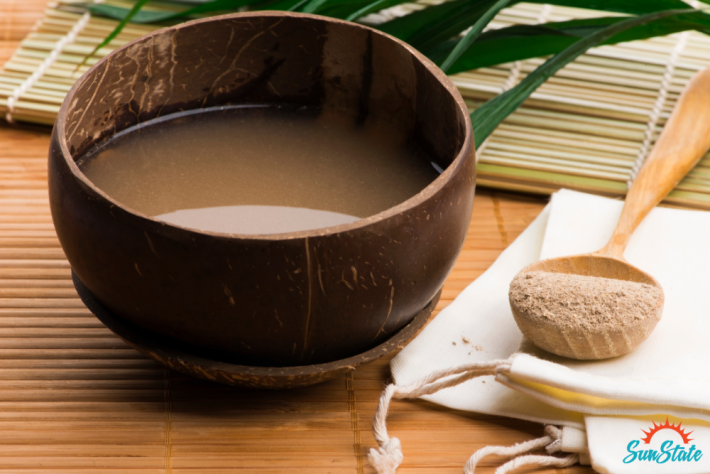Understanding Kava and Drug Testing
Kava, a traditional drink derived from the roots of the plant Piper methysticum, has gained popularity for its relaxing effects. However, many individuals who consume kava may be concerned about whether it can be detected in drug tests. In this article, we unveil the truth behind this common query.
Kava and Drug Tests
While drug tests are primarily designed to detect illicit substances such as cannabis, cocaine, or opioids, the detection of kava is not typically included in standard drug screenings. This is because kava does not contain the same psychoactive compounds as commonly tested substances.
However, some specialized drug tests may be able to detect the presence of kava, particularly advanced tests designed for detecting kava metabolites. These tests are not commonly used in regular screenings. Therefore, the chances of kava being detected in a standard drug test are relatively low. If you’re concerned about potential detection, it’s advisable to check with the relevant testing facility to determine whether they specifically screen for kava.
What is Kava?
Kava, scientifically known as Piper methysticum, is a plant native to the South Pacific islands. Traditionally, the drink made from its roots has been consumed for centuries for its calming and euphoric effects.
Preparation and Cultural Significance
The preparation of kava involves grinding the roots into a fine powder and mixing it with water, resulting in an earthy and slightly bitter beverage. Kava holds significant cultural importance, often used in social and ceremonial gatherings, symbolizing hospitality and community bonding.
Active Compounds
The active compounds in kava, known as kavalactones, are responsible for its psychoactive properties. There are about 18 different kavalactones, with six being the most studied. These compounds interact with the brain’s neurotransmitter systems, particularly GABA receptors, contributing to kava’s calming effects. Unlike alcohol or other sedatives, kava does not significantly impair cognitive function or motor skills, making it a popular alternative for relaxation.
Popularity and Controversy
Kava has gained popularity beyond its traditional roots, especially in Western countries. It is now available in various forms, including capsules, tinctures, and powdered extracts, catering to a diverse audience seeking natural stress relief. However, concerns about its potential liver toxicity and legality in certain regions remain.
Common Uses of Kava
Kava is primarily known for its relaxing properties, making it popular for individuals looking to unwind. Many users report reduced anxiety, making it an alternative to pharmaceuticals for managing stress.
Social Use
In Pacific Island cultures, kava is integral to social gatherings, fostering community connections. Sharing kava during traditional ceremonies enhances social interactions, making it a staple in cultural events.
Wellness Benefits
Kava is also marketed in wellness circles for improving overall well-being, with users reporting enhanced mood and better sleep quality. However, individuals should approach kava with caution, understanding its effects and potential risks.
Understanding Drug Tests
Drug tests are standardized assessments designed to detect specific substances. These tests are commonly used in employment screenings, legal proceedings, and medical evaluations.
Types of Drug Tests
There are several types of drug tests, including urine, blood, saliva, and hair tests. Urine tests are the most common due to their non-invasive nature, while blood tests provide precise results but are invasive. Saliva tests are often used in roadside checks for convenience, and hair tests offer a longer detection window.
How Drug Tests Work
Most drug tests rely on immunoassay techniques that use antibodies to detect specific metabolites associated with drug use. If a drug is detected, confirmatory testing, often using methods like gas chromatography-mass spectrometry (GC-MS), may follow to verify results.
Can Kava Be Detected in Drug Tests?
The likelihood of kava being detected in standard drug tests is relatively low, as these tests do not target kava or its metabolites. However, advanced testing methods may specifically detect kava, though these are not widely used in standard screenings.
Workplace Policies
Individuals should remain informed about their workplace testing policies, as some employers may have stricter guidelines. It’s advisable to clarify whether kava is included in their screening procedures.
Factors Affecting Kava Detection in Drug Tests
Several factors can influence kava’s detectability, particularly with specialized tests:
- Amount and Frequency of Use: Regular, high-dose consumption may increase the likelihood of detection.
- Metabolism and Health: Individual metabolic rates can affect how quickly substances are processed.
- Method of Consumption: Different forms of kava may have varying absorption rates.
False Positives and Negatives in Drug Tests
False positives occur when a test incorrectly indicates the presence of a substance. Although standard tests are unlikely to detect kava, certain compounds may trigger false positives for other substances.
Conversely, false negatives happen when a test fails to detect a substance that is present. Timing of the test and the sensitivity of the method used can impact detection.
Tips for Avoiding Kava Detection in Drug Tests
To minimize the risk of kava detection:
- Know Testing Policies: Be aware of the substances screened in your workplace.
- Timing: Abstain from kava consumption before a test to allow it to clear from your system.
- Opt for Lower Potency: Consider kava products with lower concentrations of active compounds.
Legal Considerations for Kava Use
The legal status of kava varies significantly across regions. In some Pacific Island nations, kava is a revered cultural symbol, while in others, particularly in Europe and North America, its legality can be ambiguous.
Regulations in the United States
In the U.S., kava is classified as a dietary supplement, subject to FDA regulations. While legal to consume, the FDA has issued warnings about potential liver toxicity, prompting scrutiny of kava products.
Before consuming kava, individuals should research regulations in their area and be aware of any restrictions on sales or consumption.
Conclusion
In summary, kava is a popular herbal supplement celebrated for its relaxing effects and is generally not detected in standard drug tests. However, it’s important for individuals to stay informed about testing protocols and to communicate openly about their substance use.
Additionally, consider exploring our Delta 9 and Delta 8 products, along with HHC, which may provide enhanced effects. Understanding the factors that influence kava detection, as well as the risks of false positives and negatives, can help ease any concerns.
As legal regulations continue to evolve, staying informed is essential for responsible consumption. When used appropriately and within legal limits, kava can be a valuable tool for relaxation and social connection. By taking these precautions, individuals can enjoy kava while effectively navigating the complexities of drug testing and legal considerations.
Legal Disclaimer:
The content provided in this blog post is for informational purposes only and is not intended as medical advice. Always consult with a licensed healthcare provider before using any CBD or hemp-derived products, especially if you are pregnant, breastfeeding, or have any medical conditions.
Proudly Made in the USA.
This product contains less than 0.3% THC and is derived from hemp stalk. The Food and Drug Administration (FDA) has not evaluated this statement. This product is not intended to diagnose, treat, cure, or prevent any disease. Pregnant or breastfeeding women should not use this product, as its use may pose potential risks.
You must be 21 years or older to purchase this product. By placing an order, you confirm that you are at least 21 years of age. Please consume responsibly.
KEEP OUT OF REACH OF CHILDREN AND PETS. In case of accidental ingestion, contact the National Poison Control Hotline at 1-800-222-1222 or dial 9-1-1.
Shipping of hemp or hemp-derived products is prohibited to the following regions: Canada, Puerto Rico, AK, HI, SD, ID, NE, or any PO Boxes.



